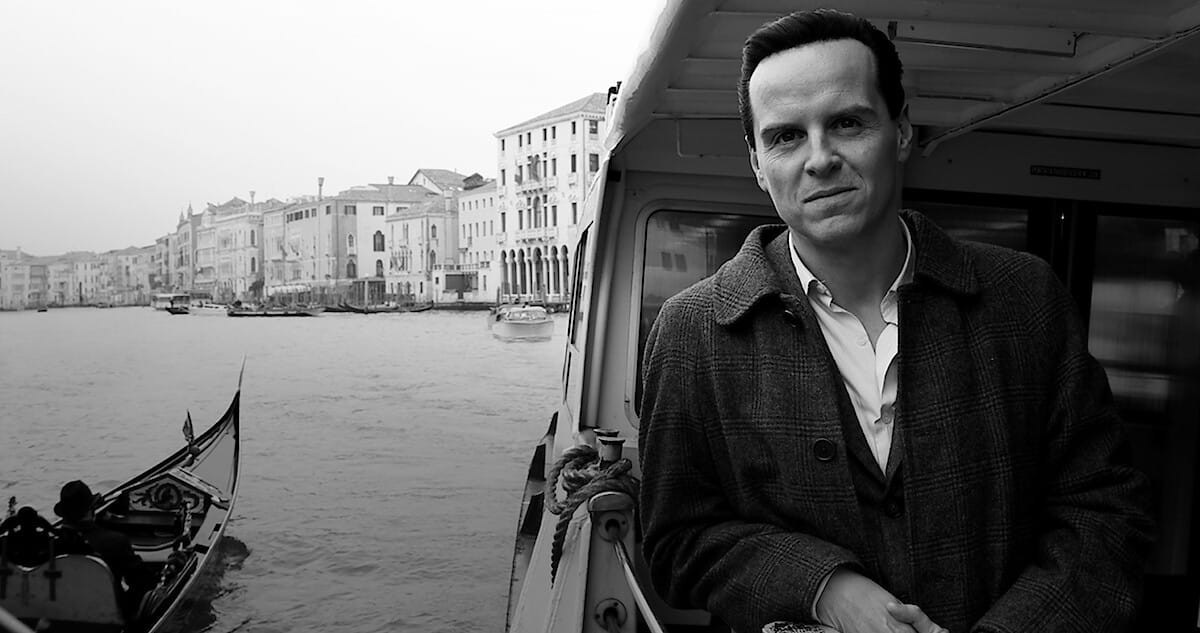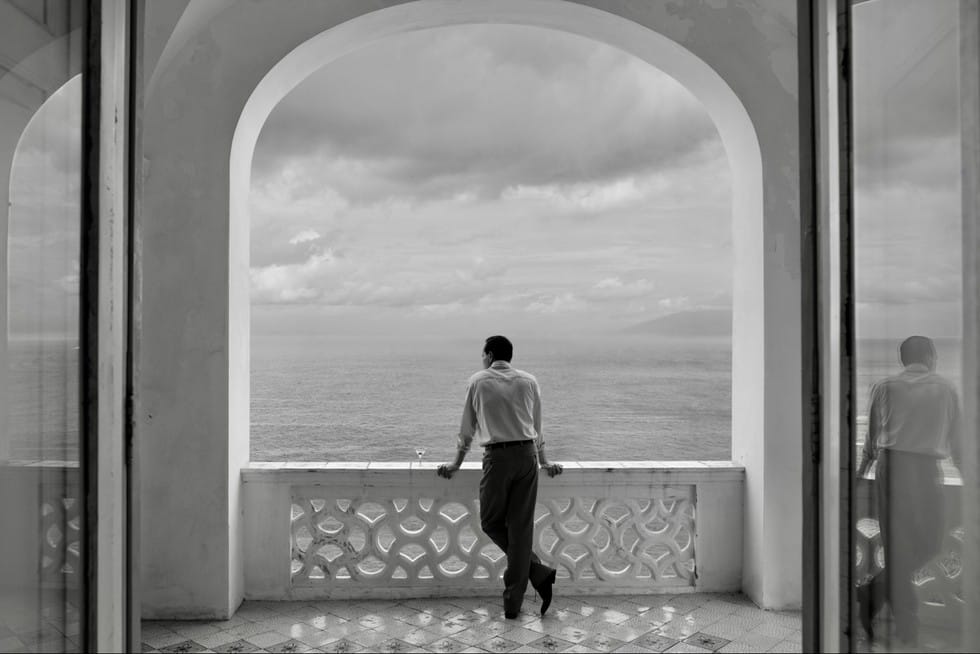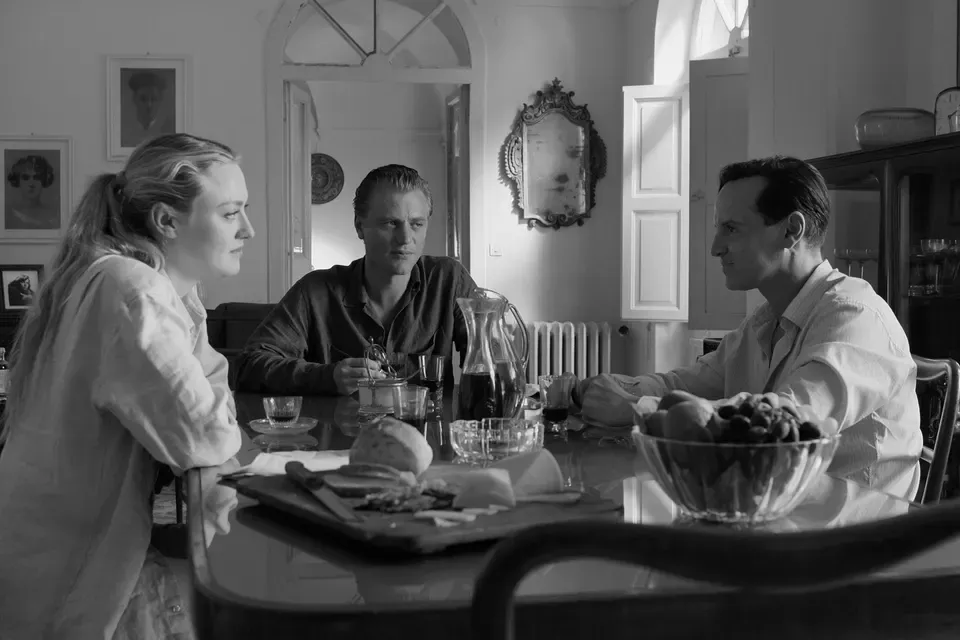What to Watch: "Ripley"
Andrew Scott plays a new version of Patricia Highsmith's classic anti-hero on Netflix; plus "Girls State" on Apple TV+ and more.

Tom Ripley and I go back quite a ways. I first made his acquaintance in a college film society screening of Wim Wender’s “The American Friend” (1977, ⭐ ⭐ ⭐ ⭐), which is admittedly more Wenders than Patricia Highsmith but which introduced me to that great soulful hangdog of an actor, Bruno Ganz, a rather more coherent Dennis Hopper that one might have expected for the era as Ripley (Hopper was shuttling back and forth from Germany to the Philippines, where he was shooting “Apocalypse Now” for Coppola), and to the character and concept of Ripley himself – an engaging, even charming psychopath.
From there I wound my way to Highsmith’s books, slowly and one by one, because there is only so long you can stay in the cold room of her imagination without getting frostbite. (A good candy sampler of her work can be found in the short-story omnibus “The Animal Lover’s Book of Beastly Murder,” in which nasty people are dispatched in a variety of ways by chickens, dogs, ferrets, snails, a Capuchin monkey, and a 300-pound truffle pig.) The five Ripley novels, published over the years from 1955 to 1991, follow the protagonist from an unformed youth to a contentedly amoral late middle-age, and they're written in the spirit of the author regularly dropping in on an old friend. (Or perhaps revisiting the darkest parts of herself: Highsmith had an occasional habit of signing her letters “Tom/Pat.”)
If you come to the books seeking any sort of conventional mystery or thriller, you’ll probably be disappointed. The Ripley novels are essays in the hard work of covering one’s tracks for crimes current or past, and sometimes other people end up dead, which is a pity but a necessary one. There are times Ripley is responsible for the deaths and other times, as in the final novel, “Ripley Under Water,” that the universe or a half-filled swimming pool is. Either way, Highsmith implies, it’s all the same.
The books are also about imposture, identification, and reinvention – the slipperiness of personality when you don’t have much of one to start with. The first book, “The Talented Mr. Ripley,” takes this as its central plot, and it’s the Ripley story most people are familiar with, having been adapted several times for the movies, TV, and radio. Rene Clement’s “Purple Noon” (1960, ⭐ ⭐ ⭐ 1/2) features an icy Alain Delon and Anthony Minghella’s “The Talented Mr. Ripley” (1999, ⭐ ⭐ ⭐ ⭐) stars Matt Damon – at that point in his career seemingly cast against type – and both are worth watching, even if Highsmith deplored the caving-in to conventional morality at the end of “Purple Noon” and, had she lived, would probably have objected to the finale of the Minghella version, which suggests that Tom is capable of normal human emotions like love. (She did have praise for Dennis Hopper’s Ripley, but only on a second viewing.)
The second book, “Ripley Under Ground,” became a 2005 Barry Pepper movie that I never got around to seeing, and the third book, “Ripley’s Game,” became both Wenders’ “The American Friend” and a 2002 film starring John Malkovich, who I remember striking me as too eccentric and cerebral by nature to be an accurate Ripley, although he did capture the character’s fundamental chill. Ripley should be the type who can blend into the crowd – a pleasant fellow you meet at a cocktail party and only later sense the disturbance left by the moral vacuum in his wake.

In “Ripley” (⭐ ⭐ ⭐) a new eight-part miniseries on Netflix, he’s played by the Irish actor Andrew Scott, who is nearly perfect for the role but not in ways you’re probably expecting. The past 15 years have seen Scott take a widening claim on the culture by playing characters who are attractively or unnervingly damaged: Professor Moriarty in a BBC “Sherlock Holmes” (2010-2017), a heartsore gay man reconnecting with his dead parents in “All Of Us Strangers” (2023), and, most famously, the “hot priest” on the second season of the BBC/Amazon series “Fleabag.”
Scott can play vulnerability very well, but he was born with the black eyes of a shark and he puts them to excellent use in “Ripley.” Written and directed by Steve Zaillian, the new show sticks more closely to the Highsmith novel than any of the earlier versions. Tom, a small-time grifter surviving on check-kiting schemes, gets a chance to travel from Manhattan to the Amalfi coast of Italy when a rich man (hello, playwright Kenneth Lonergan) hires him to bring a wayward son back home to the States. Ripley takes the assignment mostly as a way to get out of town, but upon meeting Dickie Greenleaf (Johnny Flynn), he decides that this is what he wants from life: Europe, wealth, class, ease. He wants more than Dickie’s lifestyle – he wants Dickie, or he wants to be Dickie. The difference between taking and becoming isn’t quite clear to a hollow man.
Zaillian, who wrote “Schindler’s List,” “Gangs of New York,” and “Moneyball,” and who wrote and directed HBO’s “The Night Of,” does something interesting with this “Ripley”: He glamorizes the settings while de-glamorizing the people in them. The series is shot by the talented cinematographer Robert Elswit (“There Will Be Blood”) in a crisp coffee-table black-and-white; set in 1961, the show has a vintage jet-set allure. But where the Minghella movie featured a dashing Jude Law as Dickie, here Flynn plays the character as a phlegmatic sybarite, barely rousing himself from his baronial rented villa to paint his dreadful sub-Cubist canvases.
Where Minghella cast a chic Gwyneth Paltrow as Marge, Dickie’s girlfriend, Zaillian give us a wary, watchful Dakota Fanning. (The meddlesome Freddie is played by the arch non-binary actor Eliot Sumner; they're fine but one misses, deeply, the late Philip Seymour Hoffman.) One wonders if we’re seeing this world the way Tom sees it, a human neutron bomb for whom the buildings and rooms are more interesting than the people in them. Scott can be a charismatic and fiendishly attractive actor, but he understands that there’s no there there in Tom Ripley, at least not yet, and so he plays him as an avaricious blur, an agreeable smile beneath dark eyes that take it all in and calculate the odds.

This is a dyspeptic “Talented Mr. Ripley,” in other words, and disturbingly close to Highsmith’s own conception of an empathetic monster. Will that get in the way of an audience’s enjoyment? In the later novels, Tom is suave, cultured, utterly engaging; it’s easier to “like” him. Scott is 47 and, honestly, too old to play an unformed protagonist – he gives it a very good go, but I found myself wishing I could see his later Ripleys, once the character finds his feet.
With any luck we shall. And what’s here can be mesmerizing; slow to start, perhaps, but picking up steam after that scene in the boat – you know the one I mean – when Tom Ripley finally makes his move and embarks on a life of eternally looking over his shoulder. Watching this series, I thought every so often of the scenes in “Invasion of the Body Snatchers” (either version) where the soulless alien pod takes on human form. That’s what we’re seeing in “Ripley,” and it’s a mark of the show’s success that it gets us to root for the soulless alien pod. Somewhere in Hell, Highsmith is lighting up a cigarette and howling.
Available on Apple TV+ starting this week: “Girls State” (2023, ⭐ ⭐ ⭐), a worthy documentary follow-up to 2020’s “Boys State,” also directed by Amanda McBaine and Jesse Moss. The new film follows the 2022 iteration of Girls State, an annual event sponsored by the American Legion that brings in high school students from around the country to participate in a mock-government exercise. Where the male version had the vibe of a well-intentioned rugby scrum, “Girls State” fascinatingly shows its adolescent subjects trying to figure out the difference between being popular and being effective – if you watch closely, you’ll see the missing link between middle school and Capitol Hill. “Boys State” is available on Apple TV+ too, and both “State” movies deserve attention if you have any interest in who’s going to inherit the running of this country after we’re gone. If you’re like me, you’ll come away filled with both dread and more than a little hope.
Feel free to leave a comment or add to someone else's.
I have a number of pieces in the Washington Post this week: A long rumination on the legacy of Marlon Brando (whose 100th birthday is this week) and reviews of new theatrical releases “Wicked Little Letters” and “Monkey Man.” The Brando piece will be going out separately to paid subscribers later today; the reviews can be read beneath the paywall below. If you’d like to become a paid subscriber – for which you would have the author’s gratitude – you can sign up to do so by clicking this button:




